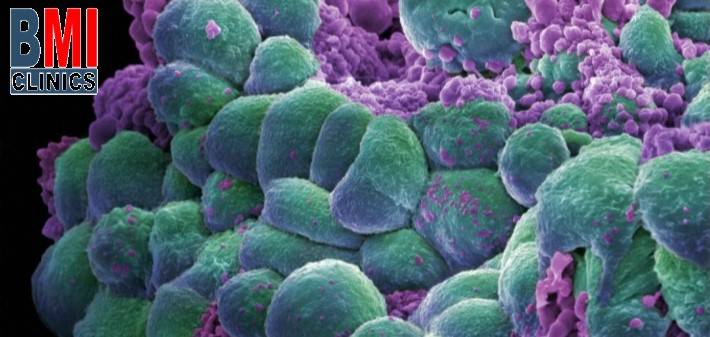Risk Factors For Prostate Cancer
Prostate cancer is a common type of cancer and a leading cause of death among men. The disease often exhibits no early symptoms and is slowly progressive. Therefore, it is essential to be aware of the risk factors for prostate cancer and to control them as much as possible.
What is the prostate and what is prostate cancer?
The prostate is a walnut-sized gland that sits near the rectum and urinary bladder. The fluid secreted by the prostate is added to the semen and nourishes the sperm. When the cells of the prostate gland undergo uncontrolled multiplication, it is called prostate cancer or adenocarcinoma of the prostate.
What is a risk factor?
A risk factor is anything that increases the chance of contracting a disease or medical condition. Risk factors can be broadly classified into those that can be modified and those that cannot be changed by lifestyle or diet modifications. Having a risk factor does not necessarily mean the person will contract the disease. Some people with many risk factors for prostate cancer may never get the disease while others with no known risk factor may develop prostate cancer. However, medical research and studies have listed many risk factors for prostate cancer that affect a man’s chance of getting this disease.
Age
Prostate cancer is commonly seen in older men and is rarely seen in men under the age of 40. The likely occurrence of prostate cancer increases with increasing age and the older the man is the higher his risk. Therefore, increasing age is one of the risk factors of prostate cancer and about 60% of all diagnosed cases are in men who are more than 65 years old.
Race and Ethnicity
Men belonging to certain racial groups have a genetic propensity to develop prostate cancer. This type of cancer is twice as common in men of African-American and Caribbean ethnicity. Asians and Hispanics have the least risk of prostate cancer based on their race, and white men also have a lower risk for reasons that are not yet clear.
Family History
Any man with a family history of prostate cancer in male relatives has a bigger risk of developing the disease. If a man’s identical twin, brother or father has suffered from the disease, it can more than double his risk of developing prostate cancer. There is a definite genetic component to prostate cancer and the disease seems to run in families. The risk is higher if multiple members of a family have been affected and if the prostate cancer occurred in them at a relatively young age.
Geography
Certain regions of the world have a higher incidence and detection of prostate cancer cases. The disease is most commonly diagnosed in North America, parts of Europe, the Caribbean Islands, and Australia. Prostate cancer is less common in Asia, Africa, and Central and South America.
Genetics
Two faulty genes, BRCA1 and BRCA2, are associated with breast cancer in women and they have also been found to be linked to prostate cancer in men. The presence of these genes is a risk factor for prostate cancer. The BRCA2 gene, in particular, is associated with a fast-spreading and aggressive form of the disease. Mutations in genes can result in a higher incidence of prostate cancer in some men, and those men with the inherited condition called Lynch Syndrome have a greater risk of developing prostate cancer.
Diet
A diet rich in red meat and high-fat high-calcium dairy has been associated with an increased risk of prostate cancer. The risk is further amplified if a man’s diet is deficient in fruits and vegetables, but further studies are needed before this link can be fully explained.
Obesity
The link between being overweight and prostate cancer is not entirely clear. Although no clear association has been found, some studies have indicated that obese men have a greater risk of developing a more aggressive type of the cancer for reasons that are not entirely clear.
Other Possible Risk Factors for Prostate Cancer
No clear conclusion has been reached regarding the association of smoking and prostate cancer. Similarly, the link between inflammation of the prostate gland and subsequent development of prostate cancer is suspected but is not clearly defined. There are no clear associations between sexually transmitted diseases and prostate cancer, and the role of vasectomy as a risk factor for prostate cancer is also unclear.









